Aetherdrift | Episode 1: The Dashing and the Desperate
Reasonable people used to tell Ishikari that her dreams were "unattainable." Her professors told her that her theories spat upon the laws of physics, magic, and even metamagic. An aether specialist of her caliber should be turning her concerns toward the great mysteries of the age, toward the problems that plagued society day in and day out. Why fixate on such a half-baked, ash-on-the-wind idea as this?
Oh, her professors all said it couldn't be done. They declined to write her recommendations so long as she persisted in this single-minded scheme of hers, turned her away from their workshops, and informed their colleagues to do the same.
What seems to you to be whimsical and harmless is a derangement, went one. Ishikari memorized that one, had it engraved upon one of her many soldering irons. If you encourage this behavior, it will only lead to her death.
As the cannons of Ghirapur fire upon the toothy warships of the invaders; as the streets run black with corrupting oil; as the cries of the dead and dying echo through the city, Ishikari knows two things with certainty.
First: everyone is going to die. Or at least most people. She can't imagine that the invaders will lend any particular care toward universities or academies. Her detractors are probably not going to make it out of this, either. Today they're going to die together.
Second: she's going to make her death count.
Up the stairs she goes. Being kept away from the core of Ghirapur was working in her favor today: she was so far from the center of town that her little tower, her precious workshop, was never going to be a primary target for them. The stairs rattle with each step, the air rich with the crackle of aether. Through the windows she sees only smoke and death and destruction.
Well, and opportunity.
Past the blueprints, past the models, past the painstaking record of the grand dream she once had. Ishikari feels no fear as she ascends. No fear at all. During the Aether Revolt, she realized something like this was inevitable. Chandra Nalaar was a hero of the people, yes, but where had her friends come from?
Someplace else.
Rashmi's Planar Bridge had made it obvious: there were other worlds than this. Soon, the inventor's writings became Ishikari's obsessions. She read all that she could, attended whatever lectures she could, and what had Rashmi given her for it?
The words come to Ishikari again: She has a unique mind for seeing beyond what is possible with our current technologies, but her methods and applications leave her unsuitable for recommendation.
Shortly after that, Ishikari had the first dream. The sky blackened, save for overhead, where it was red as split fruit; the coming of creatures she could hardly fathom. Ghirapur under attack. This smell. This suffering.
And the hope she could carve from its bloody maw, if she tried. The possibilities.
Planeswalkers and their sparks were like academia and knowledge. Shouldn't knowledge belong to everyone?
Another explosion. A window shatters next to her; shards of glass slice her shoulder and dig into her arm.
Still, she ascends. Almost there, now, to the top of the tower. The original plan had been to wait until Rashmi activated the Planar Bridge again, but though that had fallen apart, Ishikari knew she only had to bide her time. There would be another opportunity. Another great sundering of the Blind Eternities.
As she throws open the door, she sees it—and oh, how beautiful it is! The yawning pits across the sky, the glimpses into worlds she could only imagine. Angels adorned with sigils trailing in the wind; an ocean larger than she can fathom, burning eyes beneath the waves; a city of glittering lights. So many of them …
A smile comes to her face.
Oh, it's going to be so worth it.
The machine stands before her. Her machine, her child, her legacy to the world. Crafted from whatever she could get her hands on in defiance of the Consulate and good sense alike, it resembles nothing so much as the scales of a fish overlaid on one another—but only if each scale was hollowed out, only the very edges remaining.
A net. Her net.
An explosion goes off near the tower. She won't have long. But if her calculations are correct—and it's never wrong to bet on Chandra Nalaar—then any second now …
Yes! The edges of the planar windows have started to ripple. Something is about to happen, something big.
Her eyes land on the control panel of the machine, its arcane knobs and levers comprehensible only to her. She's got to act fast. Which one was it again? Right, this one: the golden lever engraved with one of her favorite sayings.
Never let common sense stop you.
She feels the words press against her palm. Feels her heart beating against the metal.
Shimmering light overtakes Ghirapur—a veil of dust and glitter.
Beat. Beat. Beat. Her heart and the Multiverse's, each in time, her pulse rising and falling with the swell of magic around her.
It has to be now. What will all of this do? She has no idea. But there's a chance, there's a chance, that it's enough.
What a shame it is that her machine isn't complete—but maybe it doesn't need to be. Maybe all this heady chaos is part of it. She and her cobbled-together machine; this invasion; the world falling apart and being put back together.
If she turns it on now, something will happen, she's sure of it.
But, given that this device was meant to use the energy of a natural mage as its power source in addition to the all-too-common aether and that Ishikari is, sadly, not a mage … to activate it may kill her.
She looks out onto Ghirapur. The ruins. The bodies. The invaders fall silent, all at once, before coming to a grinding halt.
Someone will remember me, she thinks. Someone will know I was right. And when they find the Aetherspark, my spark, they'll do something amazing with it.
Ishikari pulls the lever—and in that moment, as her consciousness briefly becomes one with the Blind Eternities—she really does attain the unattainable.
Two Years Later
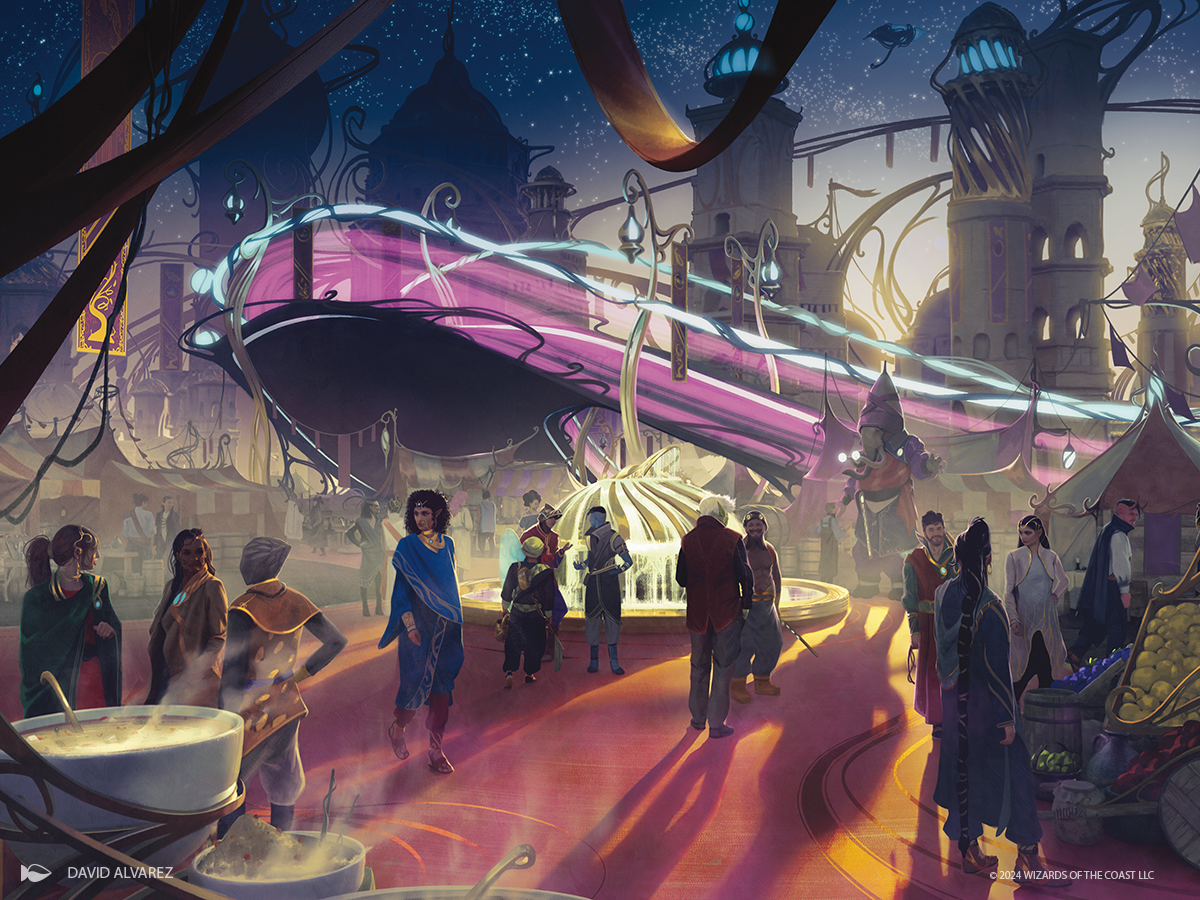
Ghirapur's current queen of underground racing, the mysterious and tough and seemingly unbeatable Spitfire, is having some trouble climbing the wall that surrounds her father's estate. Some part of her racing rig is caught on one of the decorative loops of filigreed steel at the top; the effort of freeing herself leaves her muscles screaming. A couple years ago she would've had to be careful of any servants keeping an eye on things, but there are no servants in Avishkar anymore, no masters, and that has made sneaking back inside very easy. She swings in through the window and lands with a hush on the carpet. Spitfire's mask goes on a hook behind a portrait her father had commissioned of her before the revolution. The girl in the pretty sari hardly seemed to look like her. Soft features, the light in her eyes gentle and bright.
Standing before that portrait always fills her with revulsion. It's not Spitfire. It's not even Sita: just her father's idea of what Sita should be.
But at least it has a use now.
No sooner than she has hung up her mask does she hear a familiar knock at the door, her father's knock. He had a special one that he insisted on using to distinguish himself, as if this little bit of espionage would save them in case of an impersonator.
"Sita! Sita, what's wrong with you? It's already nine. Breakfast is getting cold!"
Less time than she'd like to change. Should she lie and claim sickness? No. He'd call for a doctor. Better to try and play things off. She hides her racing suit in her nightstand and hurries to change into the dress he expects of her.
"Sorry, Dad! My alarm must have turned itself off …"
"I told you those newfangled aetherclocks were no good. What you need is an analog, my dear," he says. When she opens the door, he's waving a finger in the air. "And the best kind of analog clock is a servant. If you would just let them wake you—"
"They have better things to do than that," Sita says. Though at least these days, the servants are getting paid for the effort. Not that her father's a fan of that development.
Mohar Varma, Sita's father, has not yet shed the stations and signifiers of his former office, servants among them. His consul robes are tailored and clean, his beard trimmed, his mustache waxed. Although most regarded his sharp features as too severe for any kindness, Sita knew better. Where the rest of Avishkar remembered Mohar Varma for his cruelty, callousness, and traditionalism, Sita knows him as her doting father. A man who won over his wife with poetry and song, who ensured his only child—a daughter—received the same education that any man would have. It was Mohar who insisted that Sita learn the sciences and learn to defend herself. More than once, he'd had to chasten colleagues who critiqued that decision.
But, of course, those indulgences came with expectations. She could have whatever interests she liked—so long as she settles down properly.
Sita has no intentions of that.
"You're not sick," he says, touching a hand to her forehead. "That's good. Doctor Pradesh fancies that he can charge me whatever he likes these days, and I'd rather not have to put him in his place again."
She suppresses a wince. "Doctor Pradesh does good work," she says. "Isn't it nice that he's getting paid well for it?"
Her father rolls his eyes and puffs. When he begins marching off toward the stairs, Sita knows it's an order to follow him.
She's never liked orders, but she follows.
The tinny music that Mohar has played on the speakers throughout has done little to liven up what was once a bustling social parlor. If anything, it's only highlighted the difference the revolution has made. Her father doesn't listen to anything written within the past sixty years. Too vulgar, he says, which doesn't make any sense at all.
"Proper compensation is good and just, Sita. You know that. I would never oppose a man earning adequate pay for adequate work. The trouble comes when he dares to charge me what he would charge a commoner. It's disrespectful, and disloyal. And if I had a say, it would be dealt with properly."
"Disrespectful?" she asks. He's always been … strict. But there's a strange note of desperation to him this morning. "You can't be serious. It's only an invoice, Father."
Down the steps they go, past the portraits of their small little family: Sita through the years, Mohar in his consul chambers, her mother when her health had allowed for portrait sittings. Statues of consuls long past stare at them from their plinths.
"That's the problem with Kaladesh these days. Too much disrespect. Too much disloyalty. All it takes is one summit of upstarts, and everyone forgets who kept them safe. Discipline is a dream. In that time, a man could hold himself to the standards of morality and know that he was in the right. But these … revolutionaries, they're acting as if morality can be changed."
A little early in the morning for one of these rants, Sita thinks. For someone who claims to hold himself above the rabble, they're all he can manage to talk about. She misses when they could talk about engineering; when he would ask her what she'd learned in her studies; when they pored over blueprints together and worked on models in the garage.
How long has it been since they did that?
She knows the answer, of course.
"It's Avishkar now," she says. She might as well make some effort to correct him. Everyone else is too afraid to bother. "Invention's a wonderful name. We're all starting over together, after the invasion. Morality is the same as it's always been, nothing there's changed, but we get to figure out what kind of society works best for us all. Something new. Invention's always been in all our hearts."
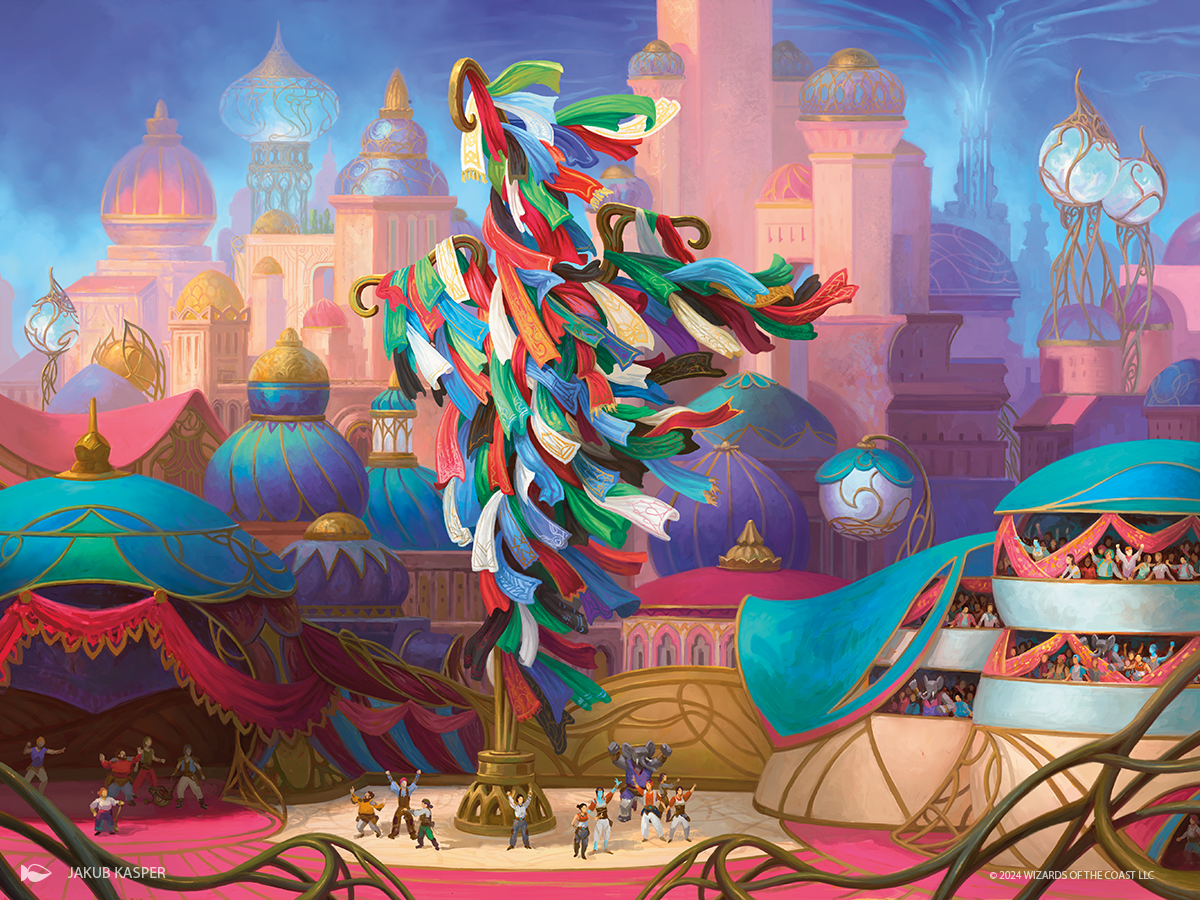
"Has it?" Mohar answers. He raises his brow. "Is invention more important than tradition? Engineering schools have fogged your goggles with steam. Will you cast aside a perfectly good piece of machinery because you want to figure out something new? Even if it works well?"
"If it hurt people," Sita answers. She frowns. "If it was part of a bigger machine that had crushed someone, if it was soldered on, and I couldn't break the two apart—of course I would. And you would, too."
He is silent for a long while. A foolish part of her hopes that this means that he will listen to her.
But she knows better, and when he starts back up, she isn't surprised, or angry. She's just disappointed.
"Kaladesh. A good, perfectly reasonable name brought by the Consulate to a land at war. One with history! To cast it aside is to cast aside every good thing the Consulate has done. It is to spit on a plate of food lovingly prepared by your own grandmother, paid for by the sweat of your grandfather. Where would Kaladesh be without the Consulate? Where will it go?"
They reach the dining room before long. The wide, round table that so often entertained guests and extended family now holds only two place settings. Still, there are heaps and mounds of food for the grabbing: parathas filled with potatoes and cauliflower, upma porridge, fenugreek theplas, idlis and sambhar, far more than they could eat together.
He's paying for all of it. He has to, now. Mohar Varma won't let anyone see him struggling. No matter how much it costs him to retain a private chef that cooks such exorbitant meals.
Her father sits before it all the same, turns on the radio, acts as if nothing has changed.
"To call this place something else won't change its nature. People are forgetting what Kaladesh really is! There is an order. Some dogs take well to training, and some do not. It is the same with people, my dear Sita—you have taken so well to inventing! And, so, it is your place to invent. But a commoner is a different thing entirely. Commoners need guidance …"
Sita picks up the paratha and tears off a piece. She dips it in the chutney and nibbles as her father prattles on. In truth, she's tuning him out in favor of the voice coming through on the radio—a news station, this time.
"Traffic is awful today in the city as the crowd gathers for a look at the one-and-only Aetherspark! Found in Ishikari Bindra's lab after the invasion, it's a marvel of engineering unlike any other. The winner of the Ghirapur Grand Prix gets to claim this once-in-a-lifetime chance at ultimate power and freedom. You and me can grab a quick look at today's opening ceremonies. But if you haven't already gotten into Ghirapur for the race, then you're not getting there in time, let me tell you! Night Minister Gonti has assured the new Consulate that the gridlock will be temporary—"
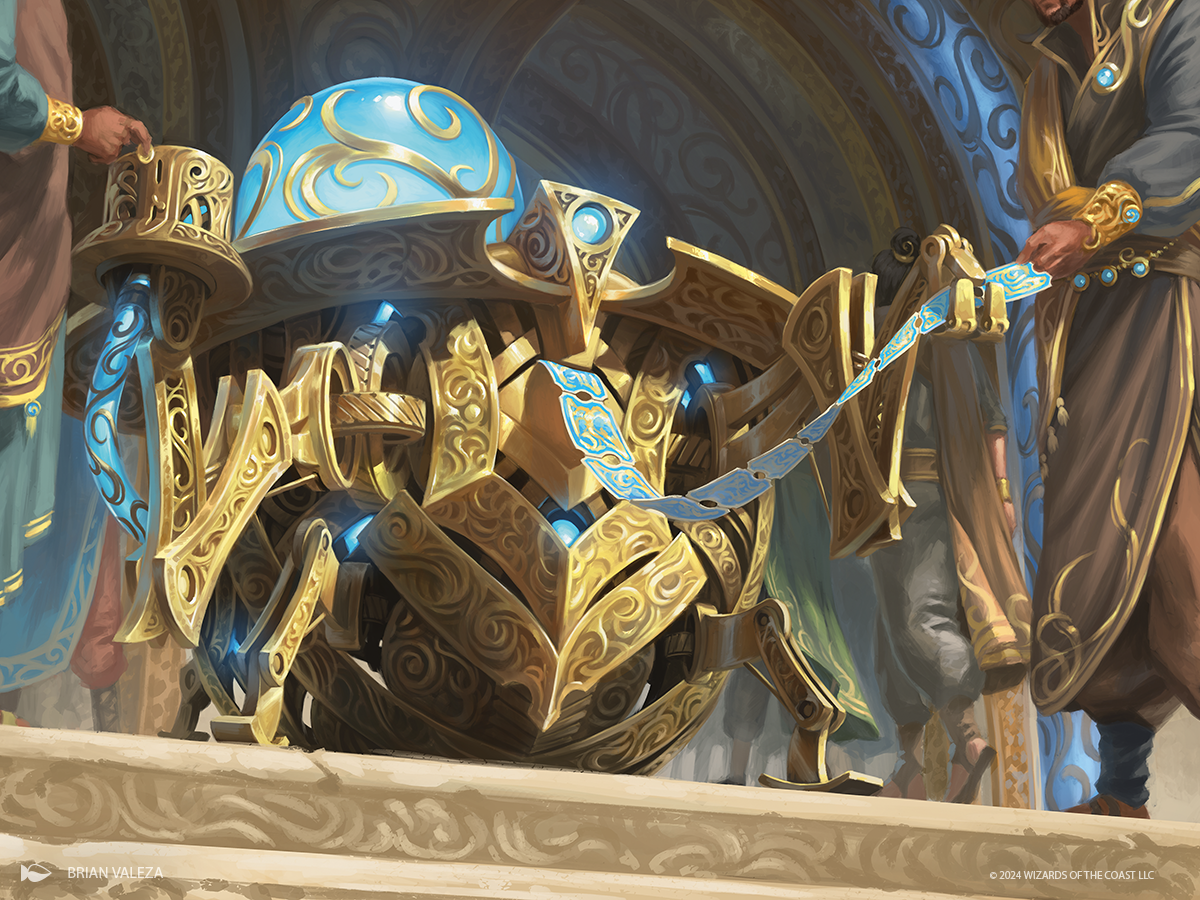
The moment Gonti's name is announced on the radio, Mohar hurls it across the room. His eyes go small as pinpricks, a vein pulses at his temple; her jaw aches just looking at the set of his.
"That … criminal."
Here is the horror of a father like Mohar: he has shown her tenderness, he has shown her recalcitrance, and sometimes, he shows her the cruel anger for which he's famous.
"Papa," Sita says. As afraid as she is at the outburst, she can't shake the need to run over and try to soothe him. "Papa, it's all right. It's just the news, that's all."
"That they should profit and we—we can barely …"
"I know," Sita says.
Over the next minute, he collects himself enough to recover. The knit of his brow loosens, and he looks up at Sita.
"Thank you. My dear, you are the future of our family. We must find you an advantageous marriage somewhere—"
She hides a wince. He pauses, his brow wrinkling.
"Did you leave the window open last night? You reek of aether fumes."
Spitfire's every move is calculated to win the hearts of those around her. For the past two years, Sita's worked on maintaining her cool in the face of impossible circumstances. It's a skill that comes in handy at home, too. for the lackadaisical shrug she gives her father is no less a performance than Spitfire's slick threats. "I was a little warm. I thought the breeze might help."
"You must keep it closed, Sita. We can't have any of those blasted commoners getting any ideas." Though he's firm, it comes from a place of care. "You know how your mother used to worry over you."
She knows. Of course she does.
She also knows what Mohar won't admit to himself: he would never have ended up on the Consulate at all if he hadn't married Madhu. Sita's maternal grandfather had been the one who granted him the position.
"Of course, Papa. Of course."
Hours of talk. Hours of listening. Hours of being trapped in the confines of her finery, her family's fallen fortunes, her father's foibles.
Sita Varma has never liked sitting still.
When her father invites over tonight's cricket-match companion, Sita changes into her real clothes. When she looks in the mirror, she sees three faces: the portrait behind her, the mask in her hand, and her own.
Sita puts on the mask.
There. That's the way she should look.
The Aether Rangers keep their garage in a distant part of town. A precautionary measure, the chief mechanic said. You'd have to really know Ghirapur to realize this place is even here. Most of the other competitors don't. They've been here for a couple weeks at best, gorging themselves on local food and pleasures, training for a race Spitfire will make certain they lose.
But there is one exception.
As Spitfire walks into the garage, Chandra Nalaar's face is smiling across all their screens. From different angles, even. The various networks can't get enough of her. And how could they? An interplanar savior, born right here on Avishkar, a defender of the city whose mother facilitated the Indigo Revolution … why wouldn't she get all the airtime in the world?
Spitfire frowns. A button on her bracers interfaces with the tech here—she mutes the screens.
"Hey, I was watching that," calls the mechanic. "You've got to give your auntie a warning before you go disturbing her workspace."
"And you've got to warn me when you adjust my steering," says Spitfire. She leans against the hood of the ride. The Aether Rangers are really something; there's no trace of the wreck from last night. "We need to push this machine as much as we can if we're going to win. I can't do that if I can't keep control of it."
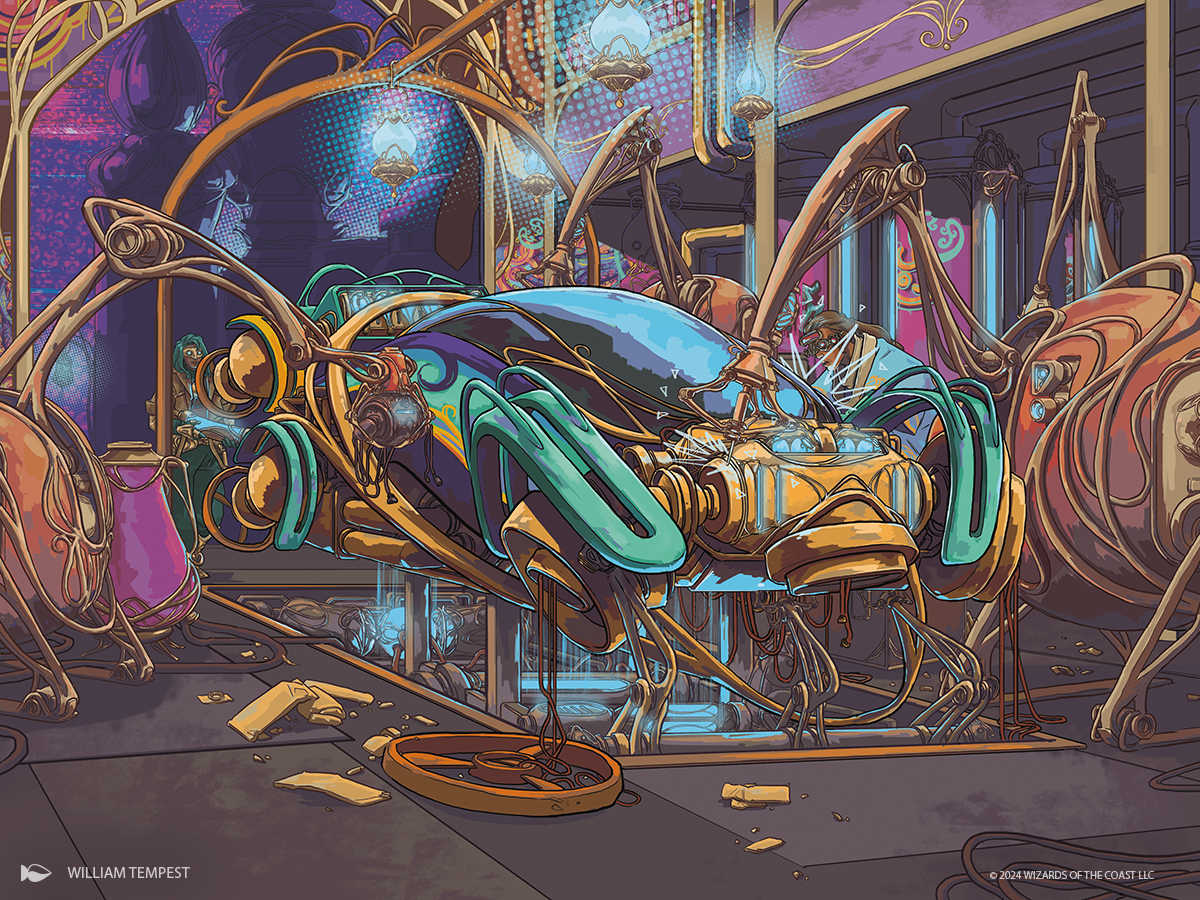
Ratcheting sounds, a blast of light from under the hood. Her mechanic curses under her breath. "Increased sensitivity means decreased reaction time. You need to push yourself as much as you're pushing the machine."
Spitfire frowns. All right. She may have a point, there. But there's a question she can't get off her mind. "Was this the way she liked it set up?"
Pia Nalaar sets down the hood. She picks up a rag and starts wiping off her hands. The look she gives Spitfire is a complicated one: sympathetic, regretful, and pained.
"The two of you are a lot alike, sometimes. I thought you might appreciate having a greater range of control, since you're always going on about precision."
Spitfire sighs. "We're different people," she says. "I can understand where you're coming from. But it's not my argument."
Spitfire walks over and looks under the hood herself. What she sees is enough to earn a hum of honest surprise from her. "A ten-cylinder aether inverter system, two separate cyclonic mitigators, and … are those golden storm pistons?"
Her mechanic smirks. "More in line with those arguments of yours?"
Sita is, of course, overjoyed. But Spitfire can't be. Not even in private. It would ruin the whole aesthetic if people thought of her as too human. So, she adopts a deeper, resonant tone when she answers: "It's a good start. But we need to adjust the angle on these …"
As Spitfire starts to go on one of her ten-minute rambles about two-degree differences, Pia Nalaar looks up at the screens again and says nothing.
"Chandra! Chandra, please look over here! Ghirapur Gazette press speaking—"
Bouncing around planes, saving the world, fighting evil, you learn a whole lot of things. One thing you don't learn is how to handle paparazzi. Maybe going out for tea in the middle of a interplanar sporting event was … not a great idea.
Also not a great idea was piling on Nissa's sweaters and wrapping a scarf around her face to try and stay undercover. The unbearable heat is only worth it if no one recognizes her, and, well, everyone already has.
Chandra picks up her teacup in one hand and waves with the other. She pulls down the scarf enough to offer them a smile. That'll be enough, right? Answer a couple of questions, say something about the race, tip this poor barista triple the usual rate …
"Miss Nalaar! Inquiring minds want to know: where do you find the best tea in the city?"
"That's easy. This place right here!" Chandra says. She grins. "Not just the best in the city, but the best in the Multiverse, too. I stop here all the time."
Wait, why is the barista wincing? Isn't it a good thing to promote this shop?
Come on, Nalaar. Smile and get this over with. She leans on the counter with the mug in hand, logo facing out. Cool. Casual. Used to this. Not panicking internally.
"I only have time for a couple more questions, so let's make them interesting. You in the red!"
"Thank you, Miss Nalaar! I'm a huge fan of your work," says the young Aetherborn. They consult their notes before figuring out what it is they'd like to ask. "Can you tell us anything about your racing philosophy? What can we expect to see from you during the race?"
"Racing philosophy? Go faster than everyone can handle. No one's got a better grip on that than me. Plus, all our rides are carefully honed. I mean, really carefully. Kolodin doesn't cut any corners. If you want more detailed stuff on philosophy, you should ask him. Next question—vedalken, over there!"
The vedalken adjusts his spectacles. "You sound awfully blasé about this. Why enter the race if you don't have a need for speed? Is it the prize that entices you?"
Keep smiling. "Everybody's got their reasons, right? But you're wrong about something. I totally do have the need for speed. My father used to hold the record for most speeding tickets in the city, you know. And he got a bunch of those with little toddler me right there on his lap."
Laughs and gasps alike from the gathered reporters. Maybe that wasn't a normal thing to share? If only Nissa was here. Then again, Nissa would hate every second of this.
"Is that so?" The vedalken continues. When another reporter tries to jump in, he cuts right in front of her, smooth as a dancer. "My sources tell me you're very interested in the Aetherspark. That you'd like to bring it home to your paramour. Is that right, Miss Nalaar?"
The cup in Chandra's hand starts to boil. She covers it with her hand and sets it down. Keep smiling, Nalaar. Deep breaths and smiles. They don't need to know how much it matters to her. They don't need to know about all the promises Chandra's made, the discussions they've had. How much it would mean to be able to fix what's gone wrong—to planeswalk away wherever they wanted, whenever they wanted.
How much it would mean to see Nissa's eyes light up the way they used to. The only reason she's doing any of this is to put a smile on that face.
What greater stakes could there be?
"Not gonna comment on that one right now," she says. Better cut this off sooner rather than later—the flashing lights are starting to spot her vision, and the barista's taken to hiding behind her counter. Is she working on a new blackboard? She is!
"I've got time for one more question. Let's see … You there, blond with the glasses!"
"Thank you, Miss Nalaar—"
"Can you guys stop calling me that?" Chandra says. "Miss Nalaar is my mom."
The bespectacled man raises a finger. "Actually, my question is about that. How does it feel to be racing against your mother? The Aether Rangers are Avishkar's hometown team, but you've chosen not to join them. Is there any bad blood between you two?"
Chandra can't quite hide the wince that comes to her, not even with a well-timed sip of scalding-hot chai. But she tries. It buys her a couple of seconds to figure out how she wants to say this.
"No, there's no bad blood. I wish her all the best, as long as 'the best' is second place."
"Follow-up to that, Miss Chandra," says the blond man. Well, it's an improvement, sort of. "Are you worried about any other racers?"
This time, Chandra scoffs. She turns away from the reporters and takes a seat on the counter. "They're the ones who should be worrying about me," she says.
He hates her.
No. That's too intense of a word. He doesn't hate things, not really. Can't find the energy. To hate something, you need to give it your attention. You need to let it distract you.
Winter can't afford that anymore.
That warm face, those bright eyes staring back at him from the screen, they've never known survival. Never known desperation. Every flippant quip, every aw-shucks smile is a needle piercing his eardrum—but he's long grown used to the sensation. It isn't anything new. Nothing can hurt him anymore. Not in any way that matters.
So, he doesn't hate her. He can't.
He just needs to study her—her and all the other racers.
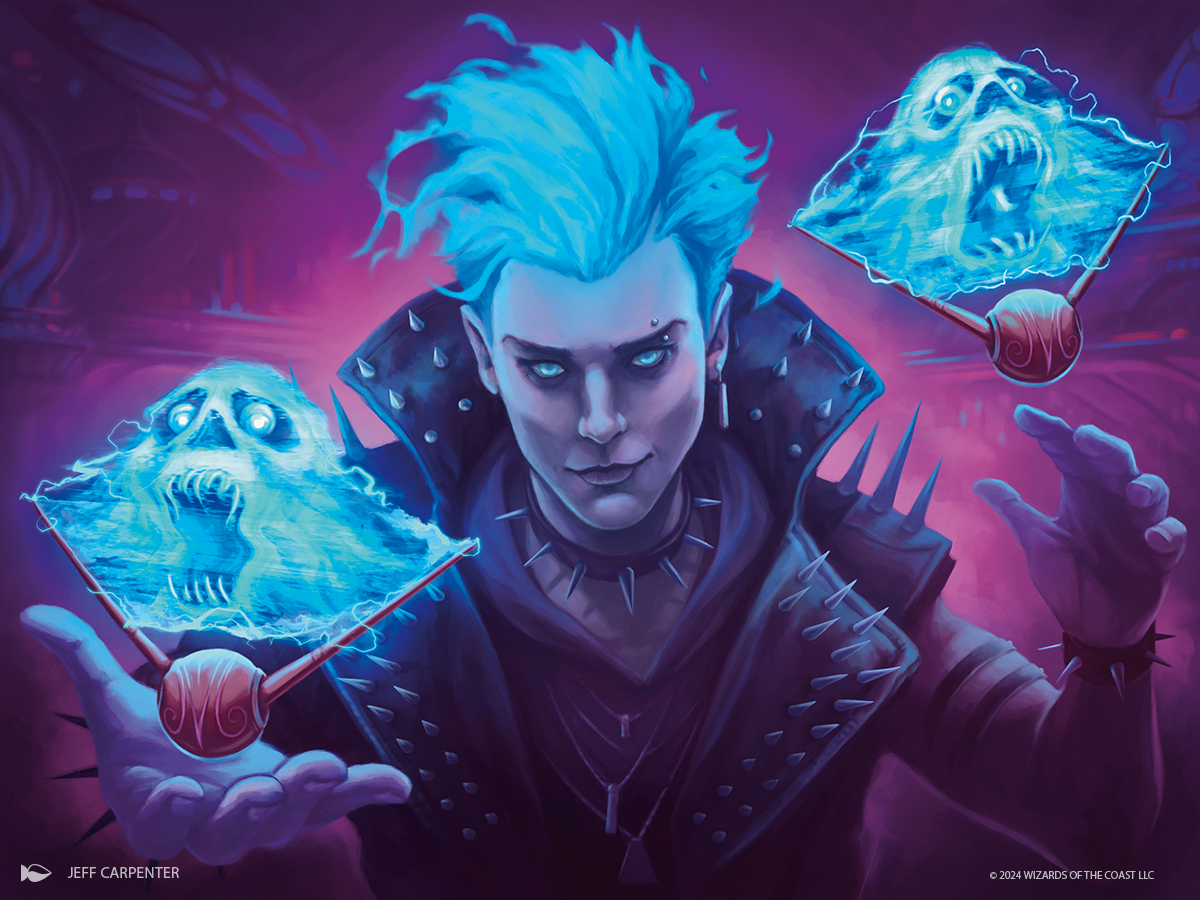
When he changes the channel, just for a second, he can see the rest of the garage behind him.
Smoke irritation paints his eyes red and darkens the circles beneath them. His vest is haggard and worn. In the background, the ghouls, slender as his hopes and dreams, clang away at his ride.
Worst of all is the skinless maw of the demon staring back at him.
"Remember the stakes," it says. "Bring us the Aetherspark, and you're free. Fail, and you belong to the House."
As if he could forget.

